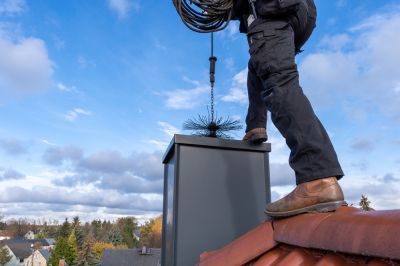
Chimney Inspection Services
- Ensures Safety: Regular chimney inspections help identify blockages, cracks, or structural issues that could lead to fire hazards or dangerous carbon monoxide leaks.
- Prevents Costly Repairs: Detecting small issues early, such as deteriorating mortar or damaged flue liners, helps avoid expensive emergency repairs later.
- Improves Efficiency: A properly inspected and maintained chimney improves the performance of fireplaces, stoves, and heating systems, maximizing energy efficiency.
- Extends Chimney Lifespan: Professional inspections ensure that minor wear is addressed before it becomes major damage, preserving your chimney for years.
- Protects Indoor Air Quality: Inspections check for blockages that can cause smoke and harmful gases to seep back into the home.
- Compliance with Standards: Many insurance companies and safety organizations recommend or require regular chimney inspections for compliance with safety standards.
FAQ for Chimney Inspection Services
Q: What is the purpose of a chimney inspection?
It ensures the chimney is safe, functional, and free of hazards such as blockages, cracks, or buildup.
Q: How often should chimneys be inspected?
Experts recommend at least once per year, especially before the start of the heating season.
Q: What types of problems can an inspection detect?
Inspections can reveal creosote buildup, structural deterioration, leaks, and ventilation issues.
Q: What are the risks of skipping a chimney inspection?
Ignoring inspections can lead to chimney fires, carbon monoxide leaks, and costly repairs.
Q: What does a chimney inspection involve?
It typically includes checking the flue, liner, masonry, cap, and overall structure for safety and efficiency.